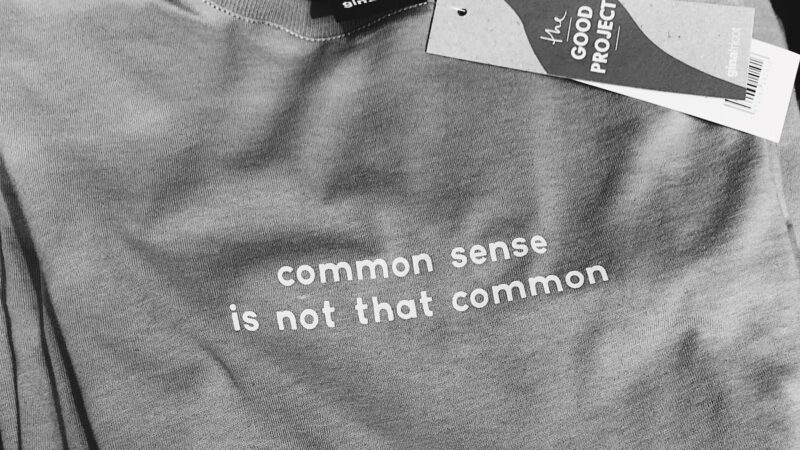It has been a month since Her Majesty Queen Elizabeth II has passed away. Having lived to the age of 96, Queen Elizabeth has been the longest reigning British monarch in history, with just over 70 years of a reign that was highlighted by some of the greatest societal transitions, advancements, regressions, and change that has ever been experienced in our human history. Her Majesty would’ve been the longest reigning monarch in human history had it not been for Louis XIV of France ascending to the throne in his childhood.
She had reigned during the tenure of 15 British Prime Ministers since Sir Winston Churchill, 14 American Presidents since Harry Truman, 16 Australian PM’s since Sir Robert Menzies, and overall 179 prime ministers in the various and vast realms and nations of the Commonwealth.
She oversaw the largest transition from the remnants of the Empire to the decolonized and “democratic” world we know today, for better or for worse, with not an ounce of tyrannical fervor or egotistical despotism that would keep those nations who gained their independence.
Rather, she welcomed the prospect of nations forging their own path – in good faith and friendship – even if it eventually proved detrimental to the people of those realms, such as the Sino-British Joint Declaration, or the abandoning of British Rhodesia and South Africa to the whims of the communist revolutionaries who destroyed the prosperity and integrity of those nations.
The ‘Second Elizabethan Era’ as it has been promptly named will be remembered as a time of great change, and regardless of many of the criticisms that many on the traditional right may have about Queen Elizabeth II’s lack of action during her reign, justified or unjustified, she will always be known for the reassurance and calm that she brought nationally, and globally, to her subjects.
Having lived in the United States, and especially going through my high school education in the region that was part of the beating heart of the American Revolution, I was often asked by my American classmates and peers as to why the Royal Family was “such a big deal”, or laughing at the idea that people could live under a King or Queen and be absolutely ok with that concept.
“LOL! What makes them so special? We have FREEDOM to choose who rules us!”
Other notable remarks I can remember was when my freshman year history teacher laughed dismissively and regarded the monarchy as a “relic of the past” and proceeded to put on a “Crash Course World History” video for my classmates to gawk at – or my sophomore year civics class where my teacher boastfully claimed that American democracy was the “best system of government that humans have been able to achieve”.
I’ll give them points for patriotism – but sadly the lack of introspection was far too apparent.
Sure – on paper Americans may not have to be subjected to the “tyranny” of a sovereign. But in reality, the “free and equal” society of the United States is neither as free nor equal as they like to boast.
There is still a ruling class that bankrolls Washington, and there are still political dynasties that take advantage of their massive wealth and resources to control the country by coercion rather than direct power.
The middle-class American finds themselves part of a shrinking demographic, as wealth becomes harder and harder to obtain, and the pitfalls of modern America continue to consume all those who find themselves close to the edge.
The “freedom to choose” is a demonstrable illusion, especially on the national level. When one challenges the powers that be, they are either “reinforced” out of the system, made an example of, or imprisoned, given a show-trials and branded as an insurrectionist.
Point this out to most Americans and they will either shrug it off as “the way things are”, laughingly defend the hypocrisy, or show complete apathy as long as it leaves them be.
Before I continue, I must point out assuredly that I love America. As flawed as it is, and as infuriating as the aforementioned points often make me, the people of the United States are some of the finest I have ever known. Where they may lack education in certain areas, they more than make up for in character.
Even the stubbornness and boastfulness, as tiresome as it may be at times, is a trait that I find rather admirable, if not lacking in nations like Britain and Australia.
If only that energy was put into the right direction, the United States may not be in the rut that it finds itself in today under the corpse of the Biden regime.
Which is why this article isn’t titled “Americans are Foolish for Not Appreciating Monarchy, etc”.
Frankly, how could the current generations of Americans understand just how good, and necessary, it is to have a monarchy? Every four to eight years they have to go through administrative shake-up to administrative shake-up of one incumbent undoing the works of his predecessor – and this exhausting reality is one that they have always known (with the exception of FDR).
I understand completely why Americans wouldn’t care about the longevity or traditions of lengthy leadership. Where we in the commonwealth have been able to rely on the consistency of monarchy, the only consistency of American politics is change – usually for the worst.
Why invest energy into caring or venerating leaders when they often lead to great disappointments, broken promises, and temporary fixtures that will only last a breath in the grand scheme of things.
Referring back to the idea of the “Second Elizabethan Era” – a period of time that encompasses 70 years of gradual change, but preserved traditions. Whereas examples in America, such as the “Jacksonian Era” or the “Progressive Era” and other such periods of time that only ever take up a couple of decades at most, and consist of rapid changes to the nation as a whole, as well as complete reformation, absconding, or complete dissolution of American traditions.
Hell, in the last twenty years alone America has gone through four eras – The War on Terror, the Great Recession, the Trump Era, and now the New Social Revolution. It’s all rather dramatic – and yet there has been no consistent presence tying it all together. Is there anything for people to latch on to for a sense of calm and representation?
The Constitution perhaps? Unfortunately there’s only a limited amount of inspiration one can get from a “living document”, and with the way Washington DC walks all over its traditions it’s hardly consistent.
The flag? Americans are meant to salute a new flag now, the rainbow flag of diversity and tolerance. The only thing close to a national flag being seen in the public square isn’t even American, but rather Ukrainian.
Suffice to say, the America of today is a shadow of its former self at best, and a completely transformed nation at worst. Realistically, what values and traditions of the Founding Fathers have carried on to the present-day United States?
Britain and the rest of the Commonwealth that have retained the monarch as their head of state may share some of these major problems, but through preserving the vital traditions and venerations of the monarchy it is more likely that these nations will be able to emerge from the current troubles of the world we live in without major identity issues, or lack of an inner cultural understanding.
In fact, the current troubles can largely be attributed to the “Americanization” of these countries – and the push for so-called “independence” which takes power and authority away from age-old institutions and into the hands of corrupt bureaucrats, politicians who only have vision that is contained to their own lives, and lobby groups who by-and-large hate the nation they advocate on “fixing”.
When watching the funeral procession of Her Majesty Queen Elizabeth, I, along with millions of others across the world were reminded of why we celebrate the traditions, importance, and lives of our monarchs. They represent us on a far deeper scale than as mere political representatives. They represent us in character, in spirit, and as physical embodiments of the realm. They are in many ways a link to the past, and a constant reminder of where we have been, what we are now, and where we ought to be going.
An example for us to aspire to, and a standard for us to maintain in our own personal kingdoms and households.
Dare I say that the effects of this phenomenon were witnessed fully during the weeks of mourning for Her Majesty. Hundreds of thousands paying their respects in person, billions watching at home and abroad. Reflection and respect being paid by the generations of people who lived under her reign.
When was the last time a President or a Prime Minister received such a widely observed departure? Polls of confidence in Charles III as a monarch went from being below fifty percent to skyrocketing across Britain and the Commonwealth.
I have written previously about the rise of Republicanism in Australia as being a large threat – but after having seen the reaction and subsequent rise in support for monarchy, I think I can rest a little easier knowing that there is still an incredibly large amount of support for the Royal Family and the monarchy that exists in my country.
My hope for the reign of His Majesty King Charles III is that the monarchy may take a more active role in guiding the realm rather than being a passive observer and a symbolic figurehead (especially as it seems that Parliament and the current Tory government is in utter shambles).
But even if he still retains the attitude of his predecessor and remains a mere symbol of tradition, that would be far better than having nothing at all.
Governments may come and go, times may get tougher, but we’d still have that link to our ancient heritage as a people, our noble traditions, and our timeless culture remain steadfast against the tides of change.
That isn’t something you can vote for. Nor is it something you can buy. Which is why we ought to protect and preserve it as best as we can for future generations.



